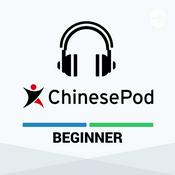87 episodes
- Download the FREE Physiotutors App 📲: https://physiotutors.app
Get 3 months free of WriteUpp's Practice Management Software. Visit: https://writeupp.com/physiotutors for more
Summary
In this episode of the Physiotutors podcast, we discuss the pervasive issue of burnout among physiotherapists, focusing on the business and operational challenges that contribute to this phenomenon. Joined by Claire Braham and Anna Bunch, experts in practice management and virtual assistance, the conversation delves into the daily realities of running a physiotherapy practice. They highlight that burnout often stems not just from long hours or difficult patients, but from the overwhelming mental load, inefficient admin systems, and the constant feeling of being behind. Claire and Anna share insights on how these factors can lead to emotional fatigue and ultimately impact both personal and professional lives. The discussion also emphasizes the importance of recognizing early signs of burnout, such as feeling constantly behind or lacking the capacity to manage tasks that once felt manageable. Claire and Anna provide practical solutions, including the implementation of effective systems and boundaries, to help clinicians regain control over their workload. They stress the need for clinicians to prioritize their well-being and consider outsourcing administrative tasks to alleviate stress and improve overall practice efficiency.
Guests
Clare is a Business Development Representative at WriteUpp, a practice management software used by many healthcare professionals. Her background is in operations, team leadership, and private practice support. She spends her time helping clinics get more organised, save time, and reduce stress around things like compliance, admin, and patient experience.
Anna Bunch is a Virtual Assistant who specialises in supporting psychologists and therapists. Since 2019, she has worked closely with private healthcare practices to improve systems, workflows, and daily operations. She also supports and mentors other VAs who work in this space.
Chapters
00:00:00 Intro
00:01:53 Burnout in daily practice?
00:04:44 Early signs of burnout?
00:08:55 Sponsor: WriteUpp
00:10:30 Constant on-mode impact?
00:16:55 Draining vs energizing patients
00:18:20 Over-responsibility problem
00:21:00 Clinicians hating admin
00:27:11 Sponsor: Physiotutors Premium
00:28:15 Insurance documentation pressure
00:30:30 Better systems for admin?
00:32:06 Tools and human support
00:36:35 Too many tools?
00:39:13 Powerful yet simple systems
00:43:35 Sponsor: Physiotutors Courses
00:44:51 One realistic change now?
00:50:15 Anything we missed?
00:52:09 Contact Details & Outro
Bonus Material
Download the referenced transcript including PubMed Links and a high-resolution infographic on this episode as part of your Physiotutors membership on the Physiotutors App.
Download the Free App now
Follow our Podcast on:
Spotify | Apple Podcasts (Dutch Episode) When Passion and Reality Collide - Quitting Physiotherapy with Arjan Elshof
04/2/2026 | 45 mins.Note: This episode was recoreded in Dutch and can be listened to in English and other languages on the Physiotutors App. The next episode will be in English again!
Summary
In this episode, we discuss the journey of Ajan Elshof, a former physiotherapist who transitioned to a care-intensive advisor role. We explore the reasons behind his departure from physiotherapy, including changing perspectives on care, the challenges of practice management, and the relationship between physiotherapists and insurers. Ajan shares insights on the future of physiotherapy, the importance of innovation, and the need for collaboration in the healthcare sector.
Chapters
00:00:00 Intro and the big question: why does a passionate physiotherapist leave the profession?
00:03:42 Why physiotherapy was chosen: sports background, injuries, and early motivation
00:05:13 Workload, balance, and no burnout
00:06:40 Sponsor: Premium membership
00:07:17 From patient care to management: views on efficient, hybrid care and the right care in the right place
00:10:24 Overtreatment vs insured sessions: ethics and clinic policy
00:12:06 Ambition, ownership, and scale of impact
00:14:27 The purchasing plan: from the first years to the concrete process
00:16:09 Why the purchasing failed and business lessons learned, market fit, agreements, transition period
00:19:17 Considered paths, education, research, own practice, and the choice for a health insurer to increase impact
00:22:29 Sponsor: WriteUpp practice management software
00:24:20 Low rates, productivity, and admin work: the health insurer's view
00:27:29 Relationship between health insurer and therapist: shared goal and trust
00:30:53 New role at Zilveren Kruis: tasks and the value of a physio background
00:33:23 Clinic vs office: differences in workday, focus, and downtime
00:36:20 How do we keep passionate professionals? Perspective, career paths, and regional primary care cooperation
00:37:43 Sponsor: Physiotutors online courses
00:39:18 Career outlook and conditions for a possible return
00:41:21 Advice to the next generation, including his own children, about physiotherapy
00:42:30 Closing message: working together toward sustainable, accessible, local care
00:44:15 Closing
Thanks to our Podcast Sponsor Writeupp! Level Up Your Learning And Streamline Your Practice. Sign up at the link below and enjoy 3 months free of WriteUpp's practice management software.
Sign Up at https://writeupp.com/physiotutors
Bonus Material
Download the referenced transcript including PubMed Links and a high-resolution infographic on this episode as part of your Physiotutors membership on the Physiotutors App.
Download the Free App now
Follow our Podcast on:
Spotify | Apple PodcastsThe role of exercise in oncology with Nele Adriaenssens, Nirit Rotem, Grainne Sheill
15/1/2026 | 59 mins.Summary
This podcast explores the critical role of exercise therapy in oncology, highlighting its importance in cancer treatment, rehabilitation, and survivorship. Experts discuss the evolution of exercise in oncology, current practices, and innovative trials that examine the interactions between exercise and chemotherapy. The conversation also addresses the unique challenges faced by patients with head and neck cancer and the significance of tailored exercise programs in improving patient outcomes. This conversation delves into the critical role of exercise in cancer care, highlighting patient barriers, the importance of personalized exercise programs, and the need for better integration of physiotherapy in oncology. The speakers discuss the life-saving benefits of exercise, the challenges faced in clinical practice, and the necessity of addressing patient fears and misconceptions about exercise. They emphasize the importance of collaboration among healthcare professionals to ensure consistent messaging and support for cancer patients. Looking ahead, they advocate for more research, education, and advocacy to improve exercise oncology practices globally.
Check out our Podcast Sponsor WriteUpp here: https://www.writeupp.com/partners/physiotutors
Guests
Prof. Dr. Nele Adriaenssens
Prof. Dr. Nele Adriaenssens from the Vrije Universiteit Brussel is an associate professor and leads the Rehabilitation Research group, focusing on cancer rehabilitation and exercise oncology, with a special interest in side effects of chemotherapy and immunotherapy and how exercise can help. She also coordinates cancer rehabilitation and survivorship at the University Hospital in Brussels and has been a key figure in building cancer rehab services and research infrastructure there.
Dr. Grainne Sheill
Dr. Grainne Sheill, clinical specialist physiotherapist in cancer rehabilitation at St James's Hospital in Dublin. Grainne leads work on exercise for people treated for head and neck cancer, looking at the barriers they face and how group based programs can support recovery, fitness and daily function after treatment.
Nirit Rotem
She is the head of the physiotherapy department at Tel Aviv Souraski Medical Center. She is a physiotherapist, educator and long standing leader in national and international physiotherapy bodies, with a strong focus on cancer care, exercise prescription and raising standards of practice and policy.
Time Stamps
00:00:00 - Intro and guest lineup: Exercise therapy in oncology overview
00:01:36 - Why is exercise part of cancer treatment, not just an extra?
00:04:04 - What "exercise" means in cancer care: cardio, strength, or both?
00:05:32 - How the role of exercise in oncology has changed since 2008–2009
00:08:42 - Sponsor: PhysioTutors Premium Membership (ad)
00:09:35 - Policy and health system view: Where oncology rehab stands and gaps
00:12:40 - How drugs/side effects shape exercise plans (exercise–pharmacology examples)
00:16:56 - PAPTOX and FORX trials: What's new vs classic cancer rehab studies
00:20:45 - Exercise goals in palliative care and oncogeriatrics
00:24:17 - Are palliative/fragile patients motivated to exercise?
00:25:30 - Sponsor: WriteUpp practice management (ad)
00:27:05 - Head & neck cancer: Why this group is different and challenging for activity
00:31:34 - National survey findings: Top barriers and surprises to exercise post–head & neck cancer
00:33:49 - Key exercise-oncology messages still missing in day-to-day practice
00:37:33 - Turning position statements into simple clinical routines
00:41:41 - Global online oncology course: Is it available yet?
00:42:15 - Sponsor: PhysioTutors online courses (ad)
00:43:10 - Screening and triage: Group vs 1:1 vs medical referral
00:46:16 - Addressing fear: How to talk about risk and safety to keep patients engaged
00:49:55 - One belief to change among doctors/nurses about exercise in cancer care
00:53:19 - Ten-year outlook: Priorities for research, education, and implementation
00:56:13 - Final messages: Getting physios on board and entry-level competencies
00:58:54 - Congress announcement and closing remarks
Bonus Material
Download the referenced transcript including PubMed Links and a high-resolution infographic on this episode as part of your Physiotutors membership on the Physiotutors App.
Download the Free App now
Follow our Podcast on:
Spotify | Apple PodcastsFrom Core to Kick: The Pelvis as the Missing Link in Hamstring and Groin Injuries ft. Nick van der Horst
05/12/2025 | 1h 7 mins.Summary
In this conversation, Dr. Nick van der Horst, a sports physiotherapist, discusses the significant impact of hamstring and groin injuries in football, emphasizing the importance of pelvic control in injury prevention and rehabilitation. He highlights the prevalence of these injuries, the role of eccentric strength training, and the need for comprehensive screening and assessment methods. Dr. van der Horst shares insights on how to modify pelvic posture and control during rehabilitation, providing practical advice for integrating these concepts into injury prevention programs. The discussion also covers the relationship between pelvic mechanics and performance optimization, making it clear that understanding these factors is crucial for effective rehabilitation and injury prevention in sports.
Guest
Dr. Nick van der Horst is a sports physiotherapist and rehabilitation specialist with deep expertise in football medicine. He's currently part of the medical staff at PSV Eindhoven's first team, where he focuses on on- and off-field rehab, return-to-play strategies, and injury prevention.Nick earned his PhD at UMC Utrecht with a thesis on preventing hamstring injuries in male soccer players. Over the years, he has worked with organizations like the KNVB and Go Ahead Eagles, and he's the founder and CEO of SoccerDoc, a platform dedicated to improving football medicine through research, education, and clinical care.His work centers on maximizing football performance by reducing injury burden and creating evidence-based, player-centered rehab and prevention programs.
Timestamps
00:00:00 Intro and guest bio
00:01:00 How big are hamstring and groin injury problems (incidence and time loss)?
00:04:04 Clarifying the topic: SI joint issues vs pelvic position/control
00:04:42 Why are pelvic control and positioning key for hamstring and groin pain?
00:12:44 Sponsor: PhysioTutors Premium Membership
00:15:28 Screening and assessment: Go-to markers for pelvic posture/control issues
00:19:27 Do you need motion capture or other equipment to assess pelvic control?
00:22:17 How do you differentiate pelvic-mechanics-related hamstring issues from tissue-specific or neural problems?
00:27:12 Common lumbopelvic patterns in recurrent hamstring and groin injuries
00:25:38 Sponsor: WriteUpp Practice Management
00:37:54 Groin pain: Is pelvic posture/control a cause or a consequence?
00:41:50 How modifiable is pelvic posture and control?
00:44:51 Rehab progression: Early vs late stages when focusing on pelvic control
00:48:54 Do you use basic core/lumbopelvic exercises (bird dog, dead bug, pelvic tilts)?
00:52:13 Have improvements in pelvic control reduced hamstring/groin injuries in practice?
00:54:46 Sponsor: PhysioTutors Online Courses
00:56:13 Case experience: Moments that shifted perspective on pelvic role
01:03:08 Practical advice for integrating pelvic control into prevention/rehab in football
01:05:49 Where to find Dr. Nick van der Horst
01:06:29 Outro
Bonus Material
Download the referenced transcript including PubMed Links and a high-resolution infographic on this episode as part of your Physiotutors membership on the Physiotutors App.
Download the Free App now
Follow our Podcast on:
Spotify | Apple Podcasts- Summary
In this podcast episode, neuroathletic performance and pain coach Jannik Schuster discusses neurocentric training, a method focusing on the brain and nervous system to enhance performance and alleviate pain. Schuster explains how he discovered this approach through personal experience with injuries and highlights its effectiveness in reducing inflammation and pain. He defines neurocentric training as targeting brain and nervous system interactions to improve performance, distinguishing it from traditional training methods that focus on biomechanical structures. Schuster emphasizes the significance of understanding the nervous system's role in pain and movement limitations, advocating for individualized approaches to address specific nervous system needs. He also discusses the integration of neurocentric training with traditional practices, the impact of visual, vestibular, and proprioceptive inputs, and the potential for neurocentric training to become more prevalent in both athletic and therapeutic settings. The conversation underscores the importance of neuroplasticity and suggests resources for those interested in exploring neurocentric training further.
Guest
Jannik Schuster — Neuroathletic Performance and Pain Coach, M.Sc. in Sports Science, educator, and former elite footballer. After training in the youth academy of FC Augsburg and the professional squad of FC Schweinfurt, Jannik discovered neurocentric training as a breakthrough method to unlock performance, prevent injury, and resolve pain. Educated through Z-Health and grounded in sports science, he now helps others apply neuro-based strategies for pain-free movement and optimal function
Content
00:00:00 Introduction
00:00:47 Yannick's Background and Introduction to Neuroathletic Training
00:02:49 Definition and Differentiation of Neurocentric Training
00:04:36 Scientific Foundation of Neurocentric Training
00:08:39 Common Misconceptions in Neurotraining
00:10:23 Role of the Nervous System in Pain and Movement Limitations
00:11:55 Neurocentric Training in Rehab
00:14:42 Assessment and Testing in Neurocentric Training
00:21:46 Role of Visual, Vestibular, and Proprioceptive Inputs
00:25:19 Typical Neuroperformance Training Session
00:28:17 Effects Observed in Performance-Oriented Athletes
00:31:01 Athlete Feedback on Neuro Training
00:35:38 Prevalence of Neurocentric Training in Elite Sports
00:37:29 Integration with Traditional Training and Therapy
00:40:08 Incorporating Neurocentric Elements in Daily Work
00:47:03 Striking Changes Observed Through Neuro Training
00:49:23 Resources for Learning About Neurocentric Training
00:51:27 Conclusion and Final Thoughts
Bonus Material
Download the referenced transcript including PubMed Links and a high-resolution infographic on this episode as part of your Physiotutors membership on the Physiotutors App.
Download the Free App now
Follow our Podcast on:
Spotify | Apple Podcasts
More Education podcasts
Trending Education podcasts
About Physiotutors Podcast
The Physiotutors Podcast offers in-depth conversations with leading clinicians, researchers, and educators who are advancing the field of physiotherapy. Each episode follows a consistent structure—covering clinical reasoning, current evidence, practical application, and professional growth.
Our goal is to bridge the gap between research and daily practice. We discuss what the evidence really says, how to apply it, and where critical thinking matters most. Listeners can expect clear explanations, balanced discussions, and actionable insights that improve both understanding and patient outcomes.
Designed for physiotherapists, students, and educators, the Physiotutors Podcast is your reliable source for grounded, science-based learning that keeps you current and confident in your clinical work.
Podcast websiteListen to Physiotutors Podcast, The Rich Roll Podcast and many other podcasts from around the world with the radio.net app

Get the free radio.net app
- Stations and podcasts to bookmark
- Stream via Wi-Fi or Bluetooth
- Supports Carplay & Android Auto
- Many other app features
Get the free radio.net app
- Stations and podcasts to bookmark
- Stream via Wi-Fi or Bluetooth
- Supports Carplay & Android Auto
- Many other app features


Physiotutors Podcast
Scan code,
download the app,
start listening.
download the app,
start listening.








































